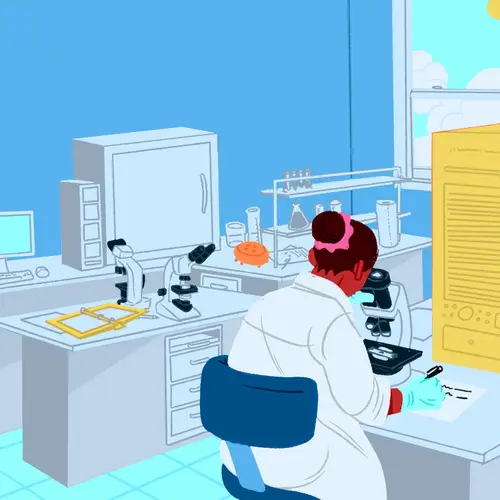What Is Broken Heart Syndrome?
Broken heart syndrome is a condition with symptoms that may feel like a heart attack, like chest pain and shortness of breath. It can happen after you go through a very stressful physical or emotional event, such as a stroke or the death of someone you love. Your doctor may call this stress-induced cardiomyopathy.
Broken Heart Syndrome Causes
During a stressful event, your body releases stress hormones such as adrenaline. High amounts of adrenaline can cause the arteries that bring blood to your heart to get smaller, which lowers blood flow to your heart. Adrenaline can also bind to heart cells. When this happens, large amounts of calcium can enter your heart cells and make it harder for your heart to beat normally.
Broken Heart Syndrome Symptoms
The most common signs are chest pain and shortness of breath. You may feel like you are having a heart attack. If you feel that way, call 911.
You may also have:
Usually, symptoms start anywhere up to a few hours after you've had stress or a shock.
Broken Heart Syndrome Triggers
Broken heart syndrome can be triggered by stressful emotional events, whether good or bad, such as:
- Grief from the death of a loved one or pet
- Loss of a relationship, job, or money
- Intense fear
- Extreme anger
- Surprises, such as surprise parties or winning the lottery
It can also be triggered by physical stress, such as:
- A car accident
- Major surgery
- A serious illness
- Health issues such as asthma, seizure, stroke, high fever, low blood sugar, or excess blood loss
It's rare, but some medicines can also cause broken heart syndrome, such as:
- Emergency medicines to treat severe asthma attacks or allergic reactions
- Some anxiety medications and decongestants (used to treat a stuffy nose)
- Illegal stimulant drugs like cocaine and methamphetamine
Broken Heart Syndrome Risk Factors
You have a higher risk of broken heart syndrome if you:
- Are assigned female at birth
- Are over age 50
- Have had seizures or a stroke
- Have had a mental health problem like anxiety or depression
Broken Heart Syndrome Diagnosis
There are several tests your doctor might do to find out if you have broken heart syndrome. They use many of these to rule out a heart attack.
Physical exam and history. Your doctor will examine you and ask about your symptoms. They'll want to know about any major events or stress you've had lately.
Electrocardiogram (EKG). Your doctor will do one of these to look for any problems with your heart's rhythm and structure. The results will let them know if your symptoms are from a heart attack.
Blood tests. It's common to have higher blood levels of cardiac enzymes when you have broken heart syndrome.
Coronary angiogram. This test looks for blockages in your heart. People with heart attacks usually have them. Folks with broken heart symptoms typically don't.
Echocardiogram. This test shows your doctor if you have an enlarged heart or if your heart has an abnormal shape while it pumps, which can be signs of broken heart syndrome.
Cardiac magnetic resonance imaging (MRI). This test gives your doctor detailed images of your heart structure and function to further help them diagnose your condition.
Broken heart syndrome vs. heart attack
They may feel the same, but they’re different. Heart attacks are caused by blockages of waxy buildup within the arteries leading to your heart. With broken heart syndrome, there aren’t any blockages; the heart just doesn’t pump blood as well as it should, which causes heart attack-like symptoms.
What Is the Treatment for Broken Heart Syndrome?
While your doctor makes a diagnosis, you'll have the same treatment as if you had a heart attack. You'll probably need to stay in the hospital for a while.
When your doctor is sure that you have broken heart syndrome, they may give you medicines to help ease the strain on your heart and prevent it from happening again. These include:
- ACE inhibitors
- Angiotensin II receptor blockers (ARBs)
- Beta-blockers
- Diuretics (water pills)
Broken Heart Syndrome Complications
On rare occasions, people die from broken heart syndrome, but most people recover fully without any long-term effects. But it’s possible to have complications, such as:
- Blood clots in the heart
- Heart failure
- Low blood pressure
- Fluid backing up into your lungs (pulmonary edema)
- An irregular or disrupted heartbeat
Broken Heart Syndrome Prevention
There's no way to prevent broken heart syndrome. But reducing your stress levels and learning how to cope with problems can reduce your risk.
Practicing these relaxation techniques can help:
- Yoga
- Meditation
- Breathing exercises
- Warm baths
- Journaling
Getting therapy and joining a support group can also help you deal with your emotions.
Taking care of your overall health is another way to help you manage physical and emotional stress:
- Exercise regularly.
- Eat a nutritious diet low in processed foods and sugar.
- Get 7 to 9 hours of sleep a night.
- Spend time with friends and family.
- Stay up to date with your medical care.
- Avoid smoking, drinking a lot of alcohol, and doing drugs.
Broken Heart Syndrome Outlook
Most people recover in a few weeks. Some people feel fatigued for a while afterward, which could make you feel depressed. You should talk to your doctor if this happens.
Can you die from broken heart syndrome?
It's very rare, but death is possible in up to 8% of cases. Most people make a full recovery.

